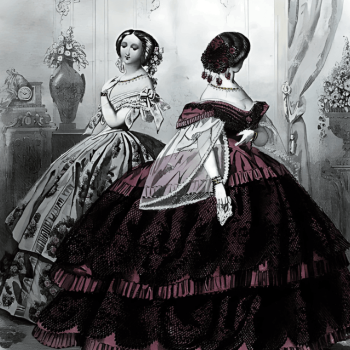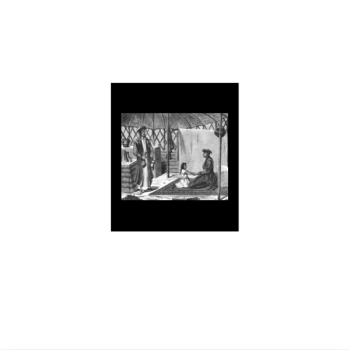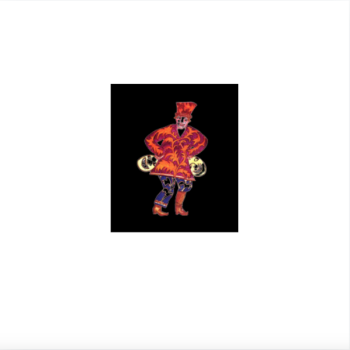ANTONIA’S STORY.
January 1842
“Well, you see,” Antonia began, “I haven’t told you yet that we lived in a small town in Finland when I was a child. My mother was a pastor’s daughter, and my father was in the Russian service. I remember, as if in a dream, that my brother, who was five years older than me, and I, were very happy while my mother was alive, and lived well. She was an excellent housewife and assistant to my father in everything. In the mornings, while he was at work, many girls and boys came to us, and Mother taught until lunch and after lunch, she copied the necessary papers for Father or sat down to sew something while we played right next to her.
“In the summer, I remember, we often went to a large lake, not far outside the city. My father loved to fish. Sometimes he took us with him into a boat and rowed us along the smooth lake. I was very afraid when my brother swam and swam too far into the lake. My mother and I, sitting on the shore under a high rock that cut into the water far, far away, shouted to him and made signs for him to come back and not swim further; but he often did not listen to us, and then I began to cry and shout to my father with tears that Ernst was drowning. My father just laughed and called me a coward. He said that the boy needed to be brave, to know how to swim, shoot, and sail a boat; he said that there was nothing to be afraid of for him.
“But one Sunday we went to the lake after lunch—my father got into the boat and, as usual, took the oars, placing Ernst at the helm, while my mother and I remained on the shore. She sat down in the shadow of our rock, and I began to look for colorful pebbles, shells, and moss, which grew a lot in the crevices of the rock around the lake. It came in different varieties and shades with fine white and pink colors. I loved playing with it, making gardens, gazebos, and beautiful patterns with colored shells. This time I was so busy playing that I forgot about everything when suddenly I was frightened by the loud cry of my mother, who at that very moment ran past me with her arms outstretched forward as if she wanted to throw herself into the water. I jumped up and looked at the lake in fear. There, far from the shore, two boats were visible—one in which my father sailed, and the other, a smaller fishing boat with a white sail. My mother was not looking there, however, but far out in the other direction, where I could not see anything at first because the sun shined dazzlingly, shimmering with golden streams over small, spreading ripples. My heart was beating fast, and I could not understand what was going on until I heard my mother’s desperate cries: ‘Ernst! Ernst! Oh, my God, my God!’
“Then I, too, began to scream and cry, calling for my brother, and then I only noticed in the middle of the sun’s reflection something black flashing from the water. It emerged once…twice…and then disappeared into the depths.
“At that moment we noticed that father was turning the boat with all his might and rowing in that direction; but the small fishing boat was closer to the place and was also rushing there, its white, swollen sail completely bent over towards the water. A few fathoms from there, the man sitting in the vessel shouted something to Father that we did not hear, and jumped into the water and disappeared. How long did he look for my brother, and how he managed to save him, I don’t know, but one thing is certain—Ernst would have died if not for him. In the place where he sank, there was a strong whirlpool, and you have to be a very strong and skillful swimmer to avoid such danger yourself and pull out another.
“This man did it. He was a healthy and strong fisherman, almost grown up on the water, who knew all the dangerous places in our lake as well as the corners of his hut, which stood on the other shore. They took my brother there, and for a long time pumped the water from his chest. Thank God that the poor mother did not see him in such a state! My poor mother and I ran there, almost mad with fear and grief. God! How happy we were when, running tired, almost falling, we saw my brother, very scary, but still alive! My mother almost fell unconscious from joy and happiness! She did not know what to do! She rushed to Ernst, then to father, to the fisherman who saved him, to his sister, hugging everyone, crying and laughing at the same time! When we reached the hut, Ernst had just come to his senses. Mother did not know how to thank the fisherman. When, soon afterward, his sister Ida needed to go into service, mother gladly took her to us as a nanny, and although she soon saw that she was a lazy and capricious girl, she did not refuse her the position, out of gratitude to her brother. This girl later became my stepmother.”
“How?” Vera involuntarily interrupted.
“Yes, she was a bad woman, and, most importantly, stupid and rude.”
“How could your father marry her?”
“He didn’t know her,” said Antonia. “When my mother died, Ida looked after us, took charge, and seemed to love us—that is until she had her own children. Father thought it would be good for us if he married her. My brother, the one who was saved from the water, hated our stepmother and began to be terribly rude to her and reproach Father. He soon went to our grandfather, a pastor, who at that time was living in St. Petersburg, and entered school there and never returned home. Our stepmother did not dare treat me too rudely in front of Father, but three years later he died, and there was absolutely no one to intercede for me. So, I would have remained a dirty maid for the rest of my life if God himself had not taken pity on me.”
“How is this?” said Vera, who couldn’t help but interrupt her again. “Tell me!”
“Yes, I’m telling you!” said Antonia, smiling at Vera’s impatience. “I don’t know whether at my father’s request or on my own behalf, my grandfather managed to enroll me as a candidate for the state account at the Novodevichy Institute.[1] The fact was, however, there were several hundred candidates like me, and therefore it was very difficult for everyone to get into the institute. God sent me such happiness! I was ten years old then, and I no longer lived with my stepmother, but with the Kister of the church where my grandfather was once a pastor.”
“Why? How is this?”
“Once, on a very cold and stormy winter evening, my stepmother was so angry with me that she kicked me out into the street, completely forgetting, of course, that in such cold I could freeze. The fact was that my younger brother, my stepmother’s beloved son—”
“The same one who is now studying in St. Petersburg with your other brother, the doctor?”
“Yes,” said Antonia. “One evening he knocked over a table. This would have been nothing if he had only broken cutlery, but in overturning the table, he spilled a pan of hot potatoes which severely bruised and burned him and doused himself in boiling water. Hearing the terrible screams of the poor boy, my stepmother ran in and, not understanding what was happening, rashly attacked me, to whom the children were, as usual, entrusted. She shouted that it was all my fault, that I did it on purpose, and that I scalded the child out of anger. She beat me severely and, when I began to try to justify myself, as soon as I opened my mouth, she became even more furious and, not remembering herself, pushed me out of the hallway into the street and locked the door with a key. The frost was strong! I was completely crazed from fear and beatings and, I don’t know why, I wandered under the snow and wind, wherever my eyes looked. I was wearing one old, tattered dress, but I didn’t feel cold, although I was probably shaking and stiff without noticing it. I walked until I fell exhausted near some threshold.
“Whether it was chance or the old memory of my grandfather’s past visits, I just wandered into the churchyard where he once lived and fell at kister’s house. Our kister, which is the same as a deacon, was a nice old man who had served under my grandfather and knew my mother as a child. Returning home that evening, he was terribly surprised to bump into me, and when I was carried into the room and he recognized me, he was terribly frightened. They wiped me off with snow, put me to bed, and gave me something hot to drink. The next day I completely came to my senses and told everything, asking and praying with tears that they would not send me back to my stepmother, these good people themselves cried over me and, poor as they were, decided to keep me with them and wrote about everything grandfather. So, I stayed with them. Although my stepmother sent the old cook for me several times and assured me that she only wanted to scare me, she immediately followed me into the street and sent me to look everywhere that same evening— but the good cook did not give me away. My stepmother threatened that she would complain and force me to come to her; and they answered her that they would inform the authorities about her cruel treatment of me, that she almost killed me by driving me out into the cold at night! And so, it remained, because it is true that she herself was afraid of publicity. Only the kind old woman Katerina, our cook, left her at the same time, having quarreled with her because of me, and since my stepmother could pay almost nothing, she was left poor with three children and completely without a servant.
“Poor thing! This is someone to feel sorry for!” Vera screamed.
“Of course, poor thing,” Antonia repeated calmly. “She was also very unhappy. In the spring the kind old kister received money from my grandfather to send me to him, along with a notification that I was lucky, as I was accepted at public expense to the institute. They were all happy and congratulated me. Although I was a little afraid, not understanding where they would take me and what would happen to me, I was happy that I would see my grandfather and be freed from my stepmother forever. Some merchant, traveling to St. Petersburg, undertook to take me, and I soon set off. Before leaving, I went to say goodbye to my brothers and sister and cried a lot, because I loved and pitied them very much. I did not know that I would never see two of them again. That same summer a terrible cholera came, and they died together with my stepmother. Her brother, the fisherman, took her youngest son to live with him, and a few years later sent him to Ernst in St. Petersburg, who was already in the service at that time.”
“And you?” Vera asked.
“I was at the institute and, since my brother was very busy, I almost never saw them.”
“When did you leave the institute?”
“When I came out, my younger brother was at school, and the older one had completely left St. Petersburg. I went to work as a governess for a lady, with whom I came to Poltava three years ago. There I met your mother and now—well, now I’m sitting with a little, evil fool and, at her whim, I remember the old days!”
“Ok then! And what about Katerina? Old kister?” Vera did not let up.
“Kister and Katerina probably died a long time ago, because they were very old. I don’t know anything about them now.”
“What a pity!”
“It is a pity. But it’s partly good,” said Antonia, laughing. “You would demand that I tell their story too, if I knew it! Come now, it’s time to go to your mother.”
“Yes! But why does the Tsar pay you money?”
“I already told you—because I studied well! I was supposed to receive an award, a golden code, and Sovereign Nikolai Pavlovich, having arrived at the institute himself for the ceremony, called me over, spoke to me, and asked: ‘Who are your relatives? What do you plan to do when you graduate from college?’ Having learned that I myself did not know what I would do, having neither relatives nor any fortune.”
The Emperor suddenly asked Antonia: “Wouldn’t it be nicer for you to receive a lifelong pension instead of a code?” Antonia, dumbfounded, did not know what to answer. The Emperor smiled and affectionately explained to her that if she wanted, then instead of the usual institute award, she, while retaining all the rights provided for in the first code, would instead receive from him security from need for the rest of her life with a royal pension of 35 rubles a month. Needless to say, Antonia readily agreed, and was grateful all her life for the royal mercy![2]
“I wanted to first try happiness in the world and, you see, I found it! I’m messing around with an unhappy girl who thinks, poor thing, that there can’t be a child in the world more unhappy than her!”
“No, Antonechka!” cried Vera, throwing myself on the neck of Antonia. “I was just talking nonsense! Thank God, I am very, very happy!”
“Let’s go to the dining room with joy, have some tea, and find out if Leonid’s hand has healed,” said Antonia. “And also see if it is possible to somehow fix the troubles that he caused in the doll’s house!”[3]
-
- MOTHERS & DAUGHTERS
- A LANTERN
- CHRISTENING OF THE DOLL
- DASHA & DUNYA
- GRUNYA
- NANNY NASTYA
- NANNY’S FAIRYTALE
- CONFESSION
- IN THE MONASTERY
- PREPARATIONS FOR THE HOLIDAY
- EASTER
- THE DACHA
- THE MELON POND
- MIKHAIL IVANOVICH
- THE WARLIKE PARTRIDGE
- LEONID
- NEW WINTER
- HISTORY OF BELYANKA
- THEATRES AND BALLS
- YOLKA
- REASONING
- ROAD
- CAMP
- IN NEW PLACES
- THE GRAY MONK
- VARENIKI
- THE TRIP TO DIKANKA
- WHAT HAPPENED IN THE DOLL HOUSE
- ANTONIA’S STORY
- “A WINTER EVENING”
- THE BLACK SEA
- CRIME AND PUNISHMENT
- PANIKHIDA
- PRINCE TYUMEN
SOURCES:
[1] Catherine the Great’s Novodevichy Institute for Girls of the Third Estate opened in January 1765 was a school for poor and orphaned girls (many being daughters of retired soldiers.) Upon graduation, each girl received a stipend of fifty to one hundred roubles. Evidently by the 1830s, this award which Antonia refers to as the “golden code,” or “first code,” was 120 rubles. [Dowler, Wayne. A History Of Education In Modern Russia: Aims, Ways, Outcomes. Bloomsbury Academic. London, England. (2022): 27.]
[2] Zhelikhovskaya, Vera Petrovna. “Helena Andreyevna Hahn (1835-1842.)” Russkaia Starina. Vol. LII, No. 3 (March 1887): 733-766.
[3] Zhelihovskaya, Vera Petrovna. How I Was Little. A. F. Devrien. St. Petersburg, Russia. (1898): 232-242.













